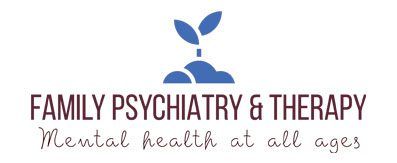If you or a loved one have ever experienced an anxiety disorder, you already understand how difficult it can be to mitigate this serious condition quickly and effectively. Many individuals afflicted by anxiety experience bouts of nervousness, irritability, and problems with sleeping and concentrating on daily tasks. However, bear in mind that this disorder affects each person differently, potentially causing a wide variety of behavioral and emotional changes.
Ultimately, connecting with an experienced psychiatrist is the best way to overcome anxiety. However, there are other effective techniques you can use to combat and control this disorder as well. Today, we’ll be discussing six invaluable methods you can use to relieve your anxiety.
1. Focus on breathing deeply and slowly.
According to Doctor Marla W. Debler, a clinical psychologist and director of The Center for Emotional Health of Greater Philadelphia, LLC, one of the first and most important steps in regaining your composure during an anxiety attack is breathing deeply and slowly. She states that deep diaphragmatic breathing is a powerful anxiety-reducing technique because it activates the body’s relaxation response, allowing you to calm down and approach the situation that’s causing you stress with a level head.
Dr. Debler recommends that victims of anxiety slowly inhale to a count of four, fill their chest with air, gently hold their breath for another four seconds, and softly exhale. The next time you’re feeling nervous or anxious, use this trick to relax and bring your stress levels down. You can repeat these steps as many times as needed until your distress abates. If you’re at work, school, or any other location where you’re concerned about public perception, politely excuse yourself and retreat to a nearby bathroom or empty space. That way, no one will even notice that you’re having difficulties with your condition.
2. Challenge any unrealistic thoughts or perceived negative outcomes.
When we’re going through a period of anxiety, it’s very easy to overwhelm ourselves with unrealistic consequences or punishments for our actions and mistakes. For example, when students with strong anxiety are just about to enter an exam, they may think something along the lines of, “I need to get a fantastic grade on this test. My life is over if I fail.” A vast majority of the time, these extreme outcomes are highly unlikely to occur in reality. In situations like these, we’re allowing irrational emotional responses to overcome our reasoning.
The next time you find yourself growing anxious about walking through a crowd, going into an interview, meeting a new person, or any other potentially troubling situation, ask yourself this question: Realistically, what is the worst possible outcome of this event? Once you realize that your brain is overreacting because of your anxiety, you’ll be able to take the reins and think logically again.
This is an especially useful practice if you’re anxious about looking foolish or incompetent around strangers or crowds. Remind yourself that you’re exceptionally unlikely to see any of these people again in your life. And even if you do something incredibly embarrassing, they’ll likely forget about it within the span of 24 hours.
3. Consider meditation sessions throughout the day.
Dr. Robbie Maller Hartman, a psychologist and Chicago health and wellness coach, says that people with anxiety should work on developing a daily meditation routine. Don’t worry, these exercises don’t require extensive training or books on personal enlightenment. All you need to do is sit up straight (with both feet on the floor), close your eyes, and repeat a positive phrase or saying in your head several times. You can check out a few online resources to find one that appeals to you, or you can make one up yourself. It doesn’t have to contain certain words or be a certain length. Just strive to find one that’s memorable and calming. Depending on where you work and live, finding peaceful and quiet places to focus on your meditation can be challenging, but you should be able to find an empty room or partitioned-off area most of the time.
4. Play your favorite music tracks when you feel anxious.
Did you know that listening to relaxing music can reduce stress and anxiety? That’s right, the simple act of popping in a few earbuds and starting up your favorite album can do wonders for controlling your emotional state during distressing situations. In fact, quiet classical music is especially effective at slowing your pulse and heart rate, lowering your blood pressure and decreasing the levels of stress hormones in your body. The next time you feel an anxiety attack approaching, try to get to an isolated space, put a comfortable pair of headphones in and listen to a soothing track or two. You can even combine this trick with your meditation exercises if you find it helpful!
5. Take care of your body.
When you’re fighting against routine anxiety attacks and stress, it’s easy to let your physical needs fall by the wayside. Remember, it’s critically important to eat well-balanced meals and get a sufficient amount of sleep every day. Your body actually requires additional sleep and rest when it’s subjected to the effects of stress, and your system can’t function properly without a constant supply of energy-boosting snacks and meals. Keep the body healthy and the mind will soon follow.
6. Seek professional help for your anxiety disorder.
All of the coping methods listed above can assist you with managing your anxiety, but you may need to seek out additional strategies or a regimen of medication to fully overcome your disorder. Here at Family Psychiatry and Therapy, our expert team of mental health professionals can provide you with all the help you need to pinpoint the source of your anxiety, identify your triggers and develop a treatment plan to regain control of your life. Setting up an appointment with us is fast and easy. Just visit our contact page, tell us how to get in touch with you, and let us know what’s troubling you.
Overcome Your Anxiety With Family Psychology of North Jersey Today
No matter how overwhelming and scary your anxiety disorder may seem, you are never beyond help. Stay strong and don’t hesitate to reach out for therapy and treatment when you need it. If you’d like any more information about how to cope with your anxiety, then be sure to call or message us today. We’re always here for you.



